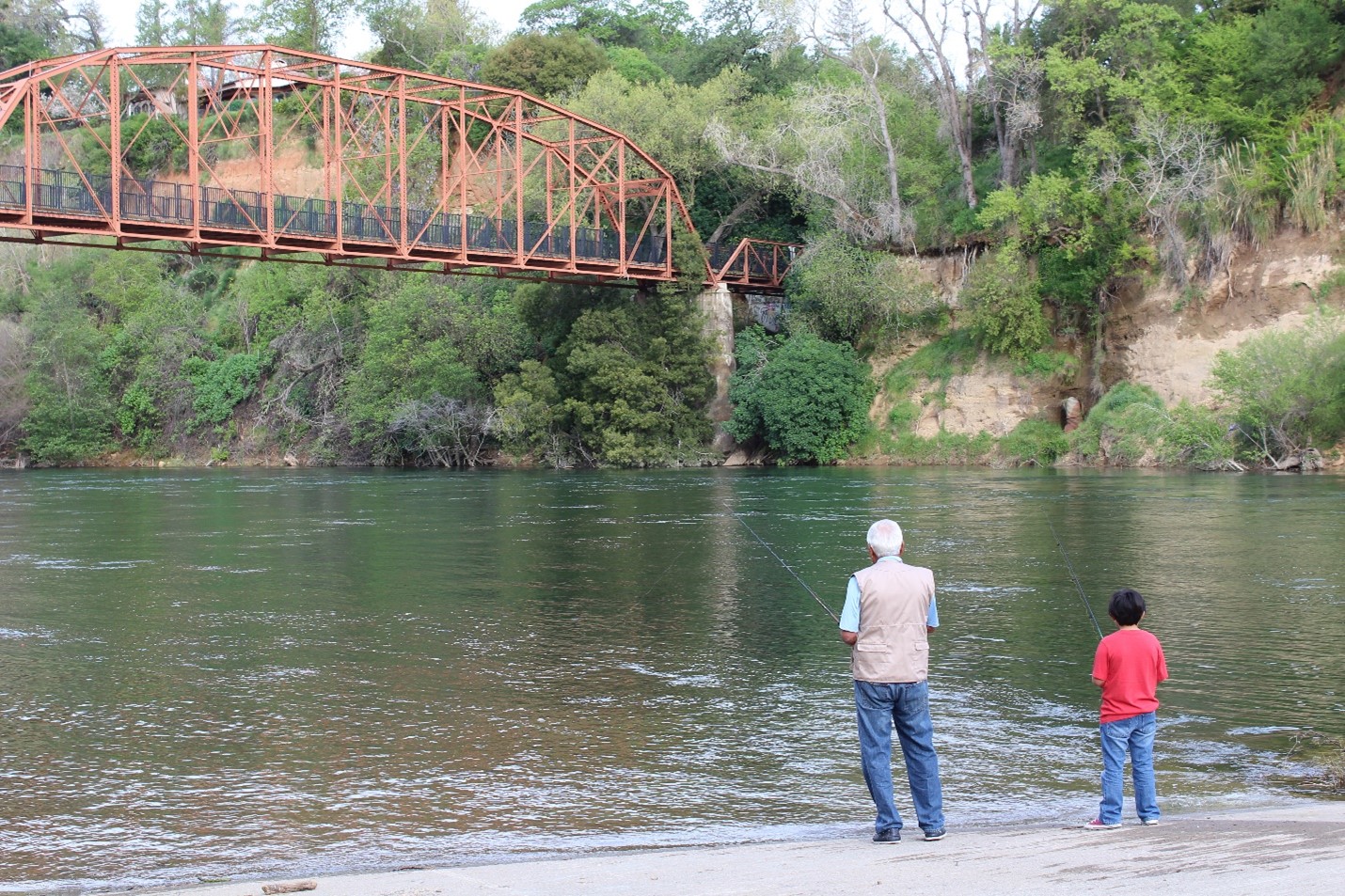
By Jessica Law
When I started as the new Water Forum Executive Director a year ago, I thought I had a pretty good idea of what I was getting into. As life would have it, 2021 was full of surprises. I am incredibly proud of the work we accomplished together in 2021—even with the continued challenges and disruption posed by COVID-19 and the sudden emergence of a drought emergency.
Here are just a few of my favorite highlights from the year:
Strong coordination and open communication with the U.S. Bureau of Reclamation: The sudden emergence of a drought emergency in 2021 put tremendous pressure on our federal and state partners working to balance the water supply and environmental needs of the statewide water system. The Water Forum worked closely with Reclamation to reduce impacts to our local water supplies and the health of the Lower American River. One critical measure was a Memorandum of Understanding with Reclamation to preserve cold water in Folsom Reservoir for fall Chinook salmon run. This included setting a storage planning goal of 200,000 acre-feet by end of September. Though challenging to achieve, Reclamation indeed hit the mark.
Cutting-edge science: One of the Water Forum’s essential roles in 2021 was to monitor how drought conditions in the Lower American River impacted the health of steelhead trout and fall-run Chinook salmon (salmonids). Water Forum consultant Cramer Fish Sciences-Genidaqs Laboratory deployed a newer monitoring process, known as an environmental DNA (eDNA) survey, to confirm if salmonids were present in the river. This was augmented with underwater video monitoring to provide visual cues to locate and identify fish. The results provided important insight to support both short-term flow decisions and long-term adaptive management.
Habitat restoration project and partnership with the Effie Yeaw Nature Center: After a year delay due to COVID-19, we implemented an outstanding project at Ancil Hoffman Park in Carmichael, laying 15,800 cubic yards of clean gravel into the flowing Lower American River for spawning and creating a 1,000-foot long alcove for rearing. This project could not have been accomplished without the incredible construction crew at the City of Sacramento Department of Utilities and California Department of Fish and Wildlife. Erica Bishop, the Water Forum’s new (extraordinary!) project manager, provided seamless leadership and expertise. Also, a huge “thank you” to John Hannon, Reclamation, and the entire consultant team, which included cbec eco engineering, GEI, IN Communications and MMS Strategies. Our partnership with Effie Yeaw Nature Center continues to grow and we are looking forward to the opening of a new salmon exhibit in 2022.
Reinvigorating the Water Forum’s Public Caucus: In 2021, we began to build on insight shared during the Water Forum’s 20th Anniversary Climate Symposium, which spotlighted environmental justice and equity, and climate change’s impacts on sensitive communities. Our reinvigorated Public Caucus brings new and diverse voices to the Water Forum 2.0 negotiations to help shape the Water Forum’s vision and work for the next 30 years.
Partnership with the Regional Water Authority (RWA): Throughout 2021, the Water Forum and RWA, which marked its 20th anniversary last year, worked together to advocate for increasing conservation and shifting to groundwater to reduce pressure on the American River environment. This included a joint opinion piece urging conservation by Water Forum members Ralph Propper of ECOS and Tom Gray of the Fair Oaks Water District published in the Sacramento Bee. I am also proud of our joint advocacy work focused on raising the American River region’s profile with state and federal policymakers and leaders.
Supporting the development of Groundwater Sustainability Plans: The Water Forum played an important supporting role in the region’s path toward groundwater sustainability by supporting the Consumnes Groundwater SGMA Working Group and potential merger of the Sacramento Groundwater Authority and Sacramento Central Groundwater Authority. Thanks to these organizations, three Groundwater Sustainability Plans were developed—roadmaps for sustainably managing the American River region’s groundwater basins over the next 20 years.
A solid foundation for Water Forum 2.0 negotiations: In spite of the challenges caused by COVID-19 and a drought emergency, we came together as Water Forum members and partners to identify many of the core issues facing the region’s water supply reliability and the health of the Lower American River. And if we learned one thing last year, it’s that climate change is already here and impacting our work on a day-to-day basis. Much of Phase 1 in 2021 focused on establishing a shared understanding about the issues that will impact the final Agreement such as climate change, fisheries, and the interaction between groundwater and surface water. We also developed and shared caucus interest statements to identify alignment.
In 2022, we will work together to further define and frame how climate change will impact the coequal objectives and the region through plenary meetings, information sessions and tours, and working groups.
In addition, our habitat and science work in the next year will expand significantly. In 2022, the Water Forum will undertake two new habitat projects—at Upper Sailor Bar and Nimbus Basin. Our science program will launch a new, two-year grant-funded effort to monitor fish returning to the river. The project, funded through the U.S. Fish and Wildlife Service, will utilize genetics research that can connect salmon and steelhead returning to the Lower American River to the Water Forum’s habitat restoration sites on the river.
Water Forum members have a proud history of working in partnership even under the most challenging circumstances. This is an important part of the “Water Forum Way” and foundation for all that we accomplished together in 2021, and path to addressing whatever surprise comes our way in 2022.
